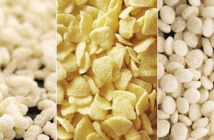
Our microbiome is all of those bacteria, viruses, fungi etc that live in and on our body, including a huge number in our digestive tract. It used to be that the only good microorganism was a dead one and that if we could only eliminate them from our bodies then we could live up to our full health potential. We now realise that they’re indispensable for our health, and without them we would extract much less nutrition from our food. The result of this is that maintaining a “healthy” microbiome is essential to our health and longevity even though exactly what constitutes a “healthy” microbiome is unknown. What we do know is that some bacterial species provide health benefits and others promote inflammation and disease, including lifestyle related diseases like obesity and type 2 diabetes. But generally, the higher the bacterial diversity of your microbiome, the better.
It is of course the food we eat that determines the health of our gut microbiome. But food safety systems and the Generally recognised As Safe (GRAS) legislation in the US primarily consider the effects on human cells and/or animal cells to determine if a food or ingredient is “safe” for human consumption. But all of this will change with our increasing understanding of the relationship between our microbiome and our health.
As a result of the realisation of this link, a lot of major food companies are now conducting research on the effects of their products on the human microbiome. Why? Because one day the food regulatory authorities will ask for the effect of a company’s food products on the other 50% of the human body, our microbiome.
In the future we’re going to need to show foods to be safe, or at least GRAS, for our entire body, not just the human cells.




























































































